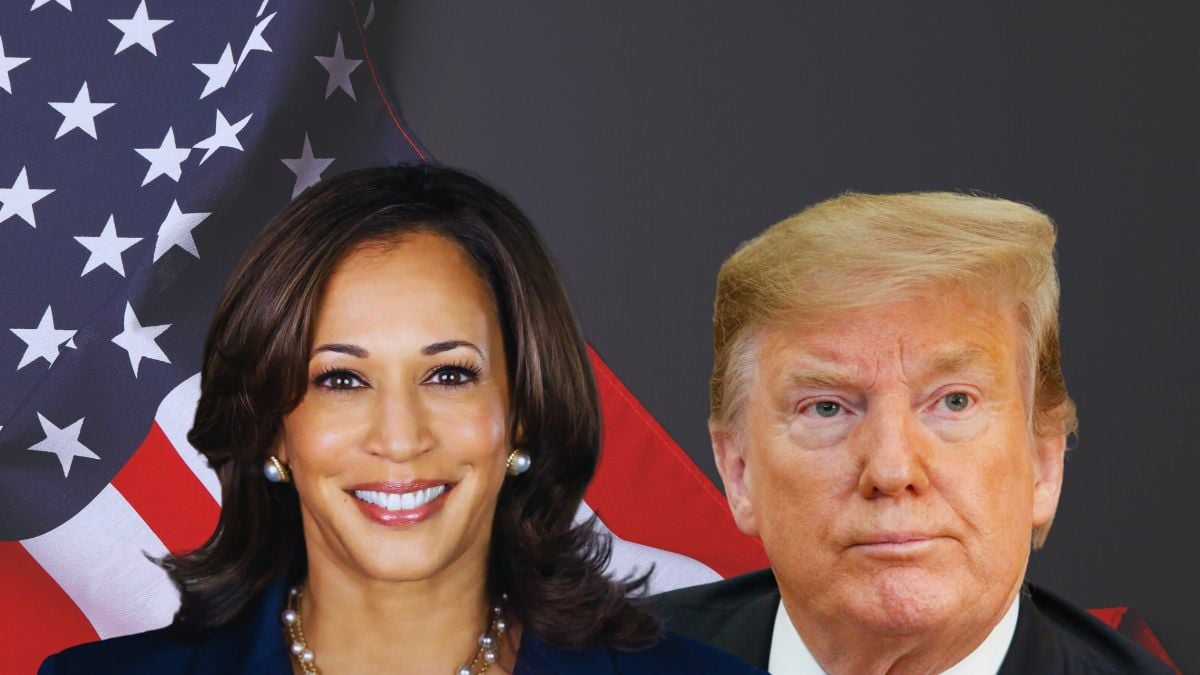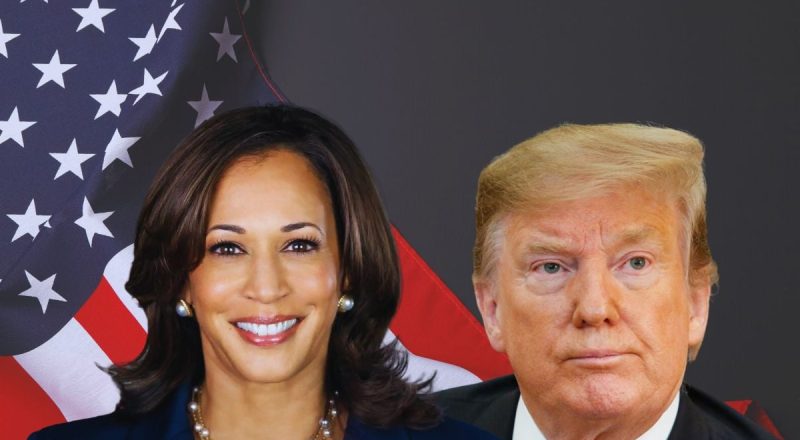
With about 40 days to go until the elections, uncertainties still define the future of the White House; see a summary of the latest facts and what to expect from this final stretch (Image: Reproduction/Getty Images Signature | Editing: Anna Zeferino)
The past week has brought interesting developments in relation to the presidential elections in the United States. Among them, we can highlight three:
- Voting has already started in some states;
- Trump refuses to participate in an upcoming debate;
- Kamala Harris leads polls for the first time.
This is a soap opera permeated with uncertainty, whose resolution will only really come in its last chapter, on November 5th. But you can check out a little more about the updates so far.
Kamala Harris' campaign said in a statement last Saturday (21) that it accepted an invitation from CNN for a new debate between Harris and Donald Trump, scheduled for October 23.
Harris posted on her X account (formerly Twitter): “I will gladly accept a second presidential debate on October 23rd. I hope Donald Trump will join me.”
However, at a rally in North Carolina on the same day, Trump said he would not participate in an upcoming debate.
“She had one debate, I had two. It’s too late to have another one. I would love to, (…) but it’s too late, the voting has already started. The voters are already active.” It is noted that Trump included the debate between him and Joe Biden in his calculation.
Kamala Harris' campaign manager Jen O'Malley Dillon said in a statement that Trump “should have no problem accepting the (next) debate,” given that the former president claims to have been the “winner” of the last one. Furthermore, there is no precedent in history for only a single debate between presidential candidates in an election year.
Trump reinforces the speech that he “won” the debate of September 10th until now, among his supporters.
Yes, voting in the US elections has already started
Last Friday (20), three American states (South Dakota, Minnesota and Virginia) officially opened voting for the presidential election
In the US (as in other countries), “early voting” is possible. In other words, even though the official election day is November 5, some states are offering voters dates starting this month to vote in person or by mail.
However, considering that the percentage of voters who vote in advance is small, apart from those who are still undecided, early voting does not prevent a new debate from being held, as Trump implied.
For the first time, polls show Kamala ahead in the polls
Over the past week, 14 new US election polls have been released. In all of them, there is either a technical tie or Kamala Harris ahead of Donald Trump – but never Trump leading by an isolated margin.
A new debate could be Trump's chance to reverse this scenario. But, going against his own historically more aggressive stance, the former president prefers to abstain and focus on the electorate that is already his.
The survey that shows the greatest gap between the candidates is that of the company Morning Consult, in which Harris appears with 51% of voting intentions, versus 46% for Trump.
Other polls include those commissioned by major media outlets such as The New York Times, Fox News and the British publication The Economist. According to the projections of the former, Harris may be ahead not only in the popular vote, but also in the number of delegates to the Electoral College.
It is worth remembering that the election in the USA is not decided by the highest percentage of the popular vote, but rather by the number of representatives that each candidate obtains for themselves in an electoral college.
However, the formation of the electoral college is close to the numbers of civil votes in strategic states in the country – those that can give the candidate the largest number of delegates.
To date, there have been only five elections in US history in which the president-elect won an electoral college majority without winning a popular majority – Donald Trump's in 2016 was one of them.
Six weeks before the elections, uncertainties still dominate
This is by far one of the closest US elections in decades. With six weeks to go, there is still no clear winner – and uncertainty reigns supreme.
But the uncertainty is not purely in relation to the name that will take over the White House, but rather the implications that this brings, especially for those who invest.
After all, anyone who thinks that the next president of the United States will not make a difference to the direction of investments around the world is mistaken.
In addition to still being the largest economy on the planet, the USA:
- They have the largest companies and stock exchanges;
- They issue the world's most important fiat currency, the dollar;
- They offer the most relevant interest rate on the market, considered the risk-free reference.
Event with leading market experts discusses the future of the economy after the US elections
Thinking about the importance of the American election for investors, Market Makers, one of the biggest hubs of financial content in Brazil, will dedicate his next special event exclusively to this topic.
Created together with Seu Dinheiro (a news portal partner of Money Times), the forum “American Elections: The Future at Stake” It will be free and online and will bring together, on October 15, 16 and 17, the greatest Brazilian experts in international relations and global investments to:
- Discuss the future of post-US election geopolitics;
- Map out the investment opportunities that arise with Kamala or Trump as president.
Remembering that the event is 100% online and free, and you can participate. All you need to do is click hereor the button below, to reserve your place.
